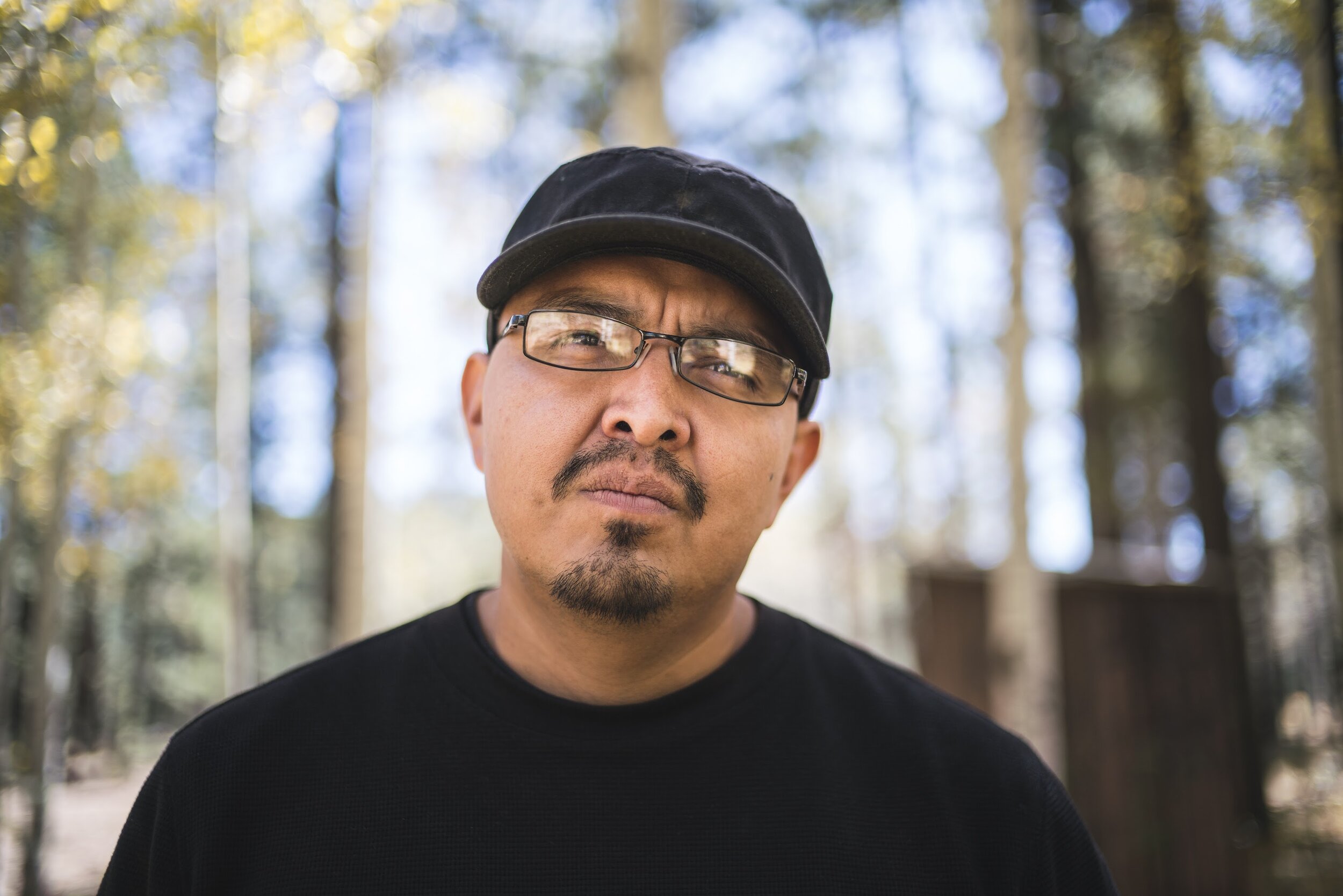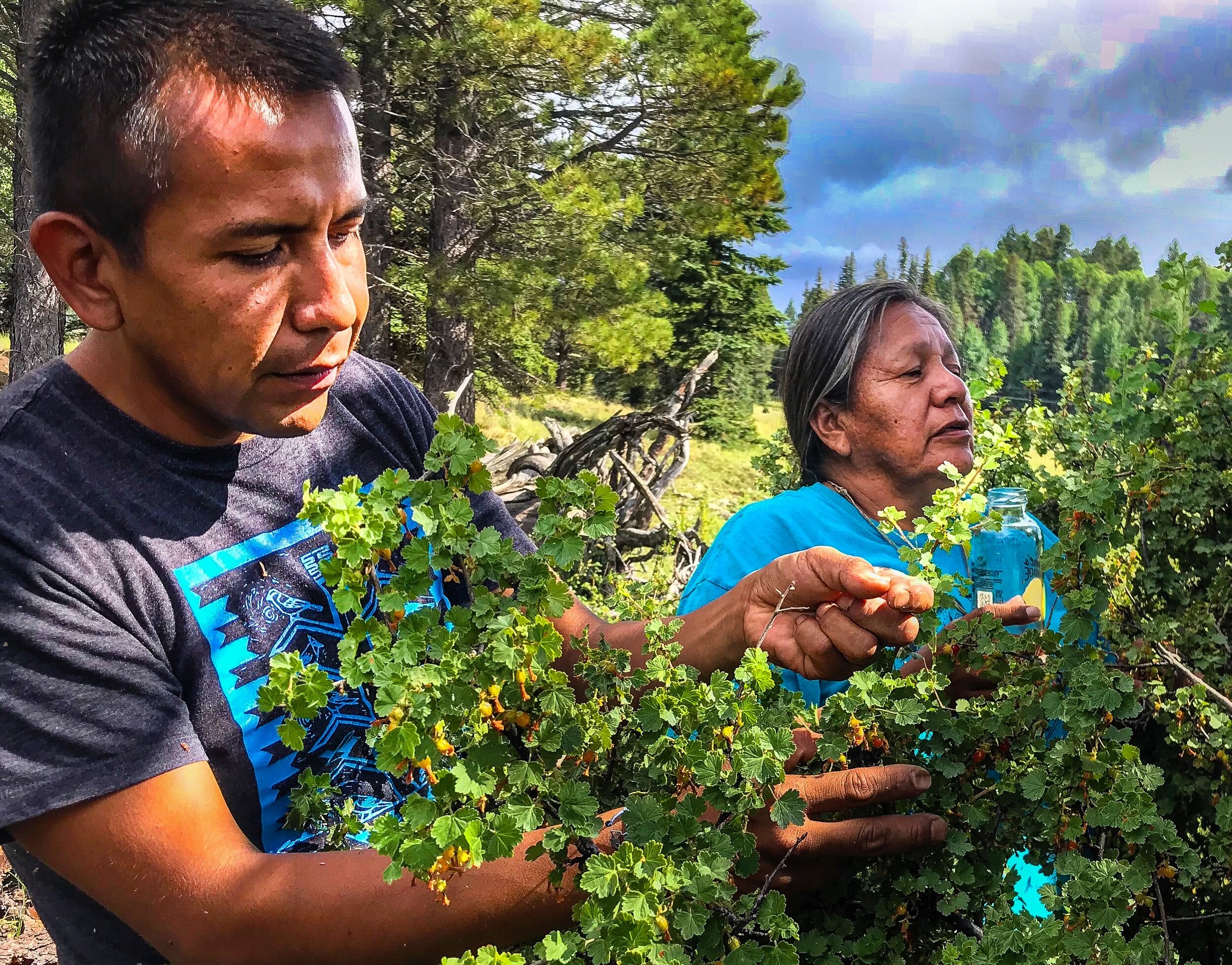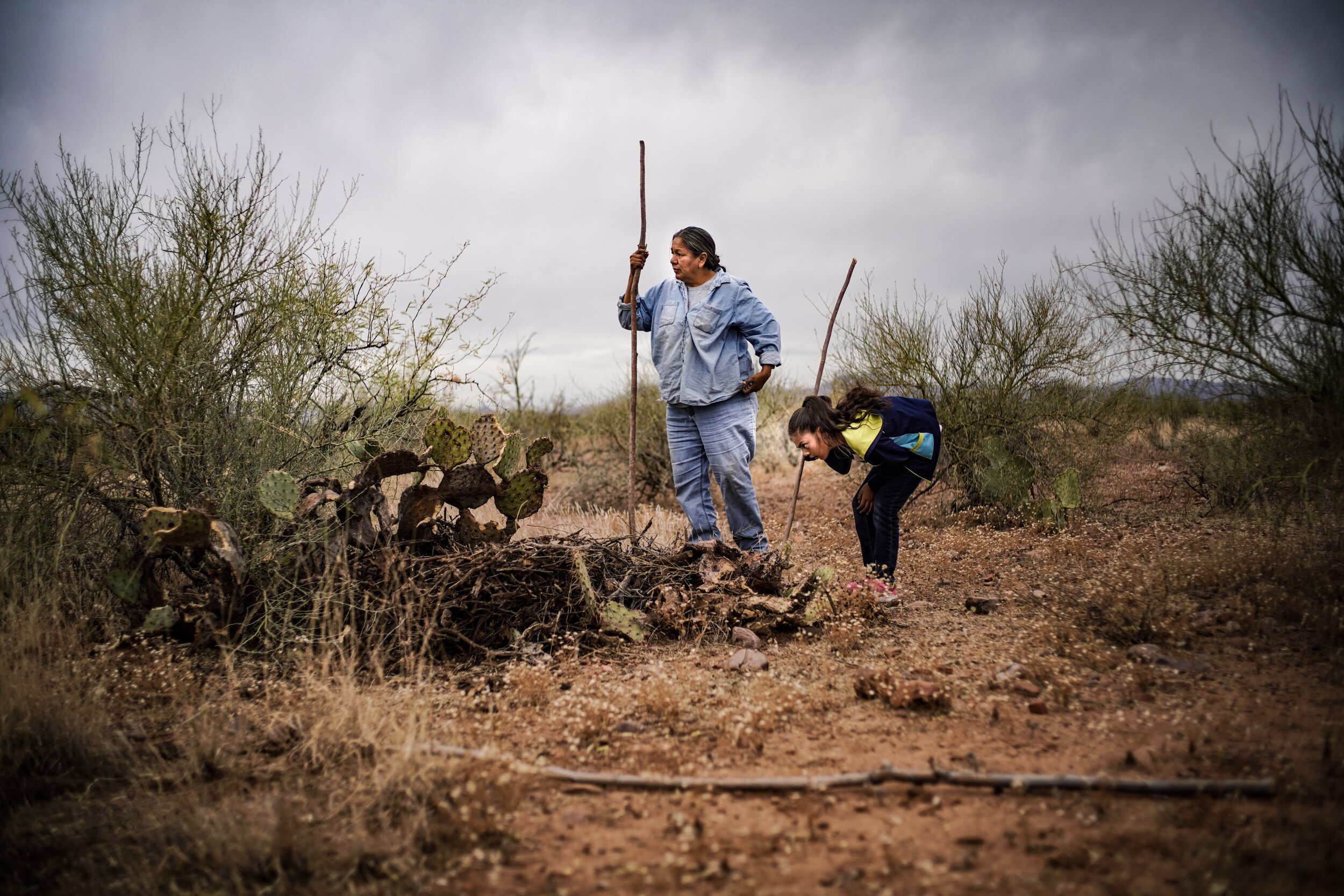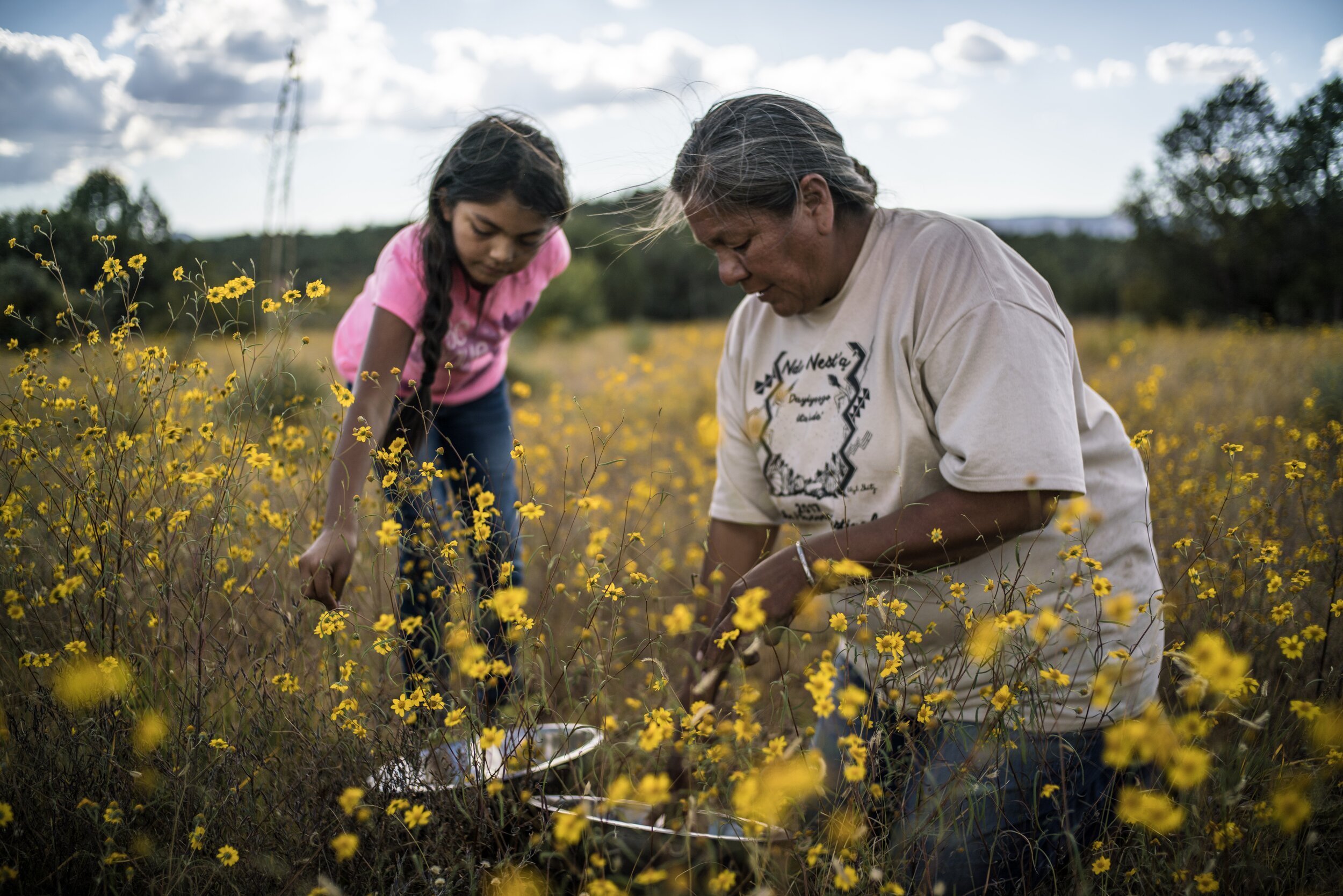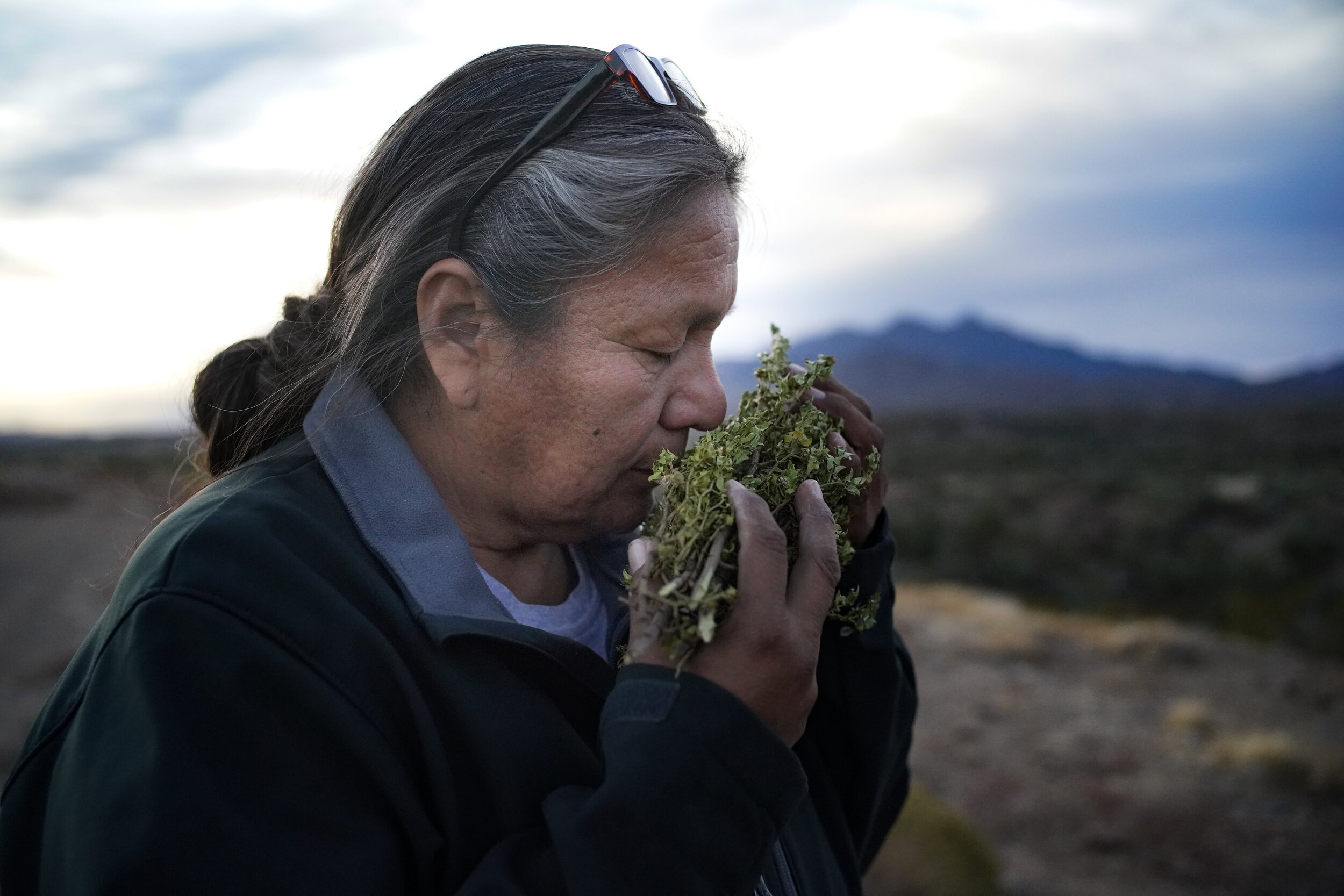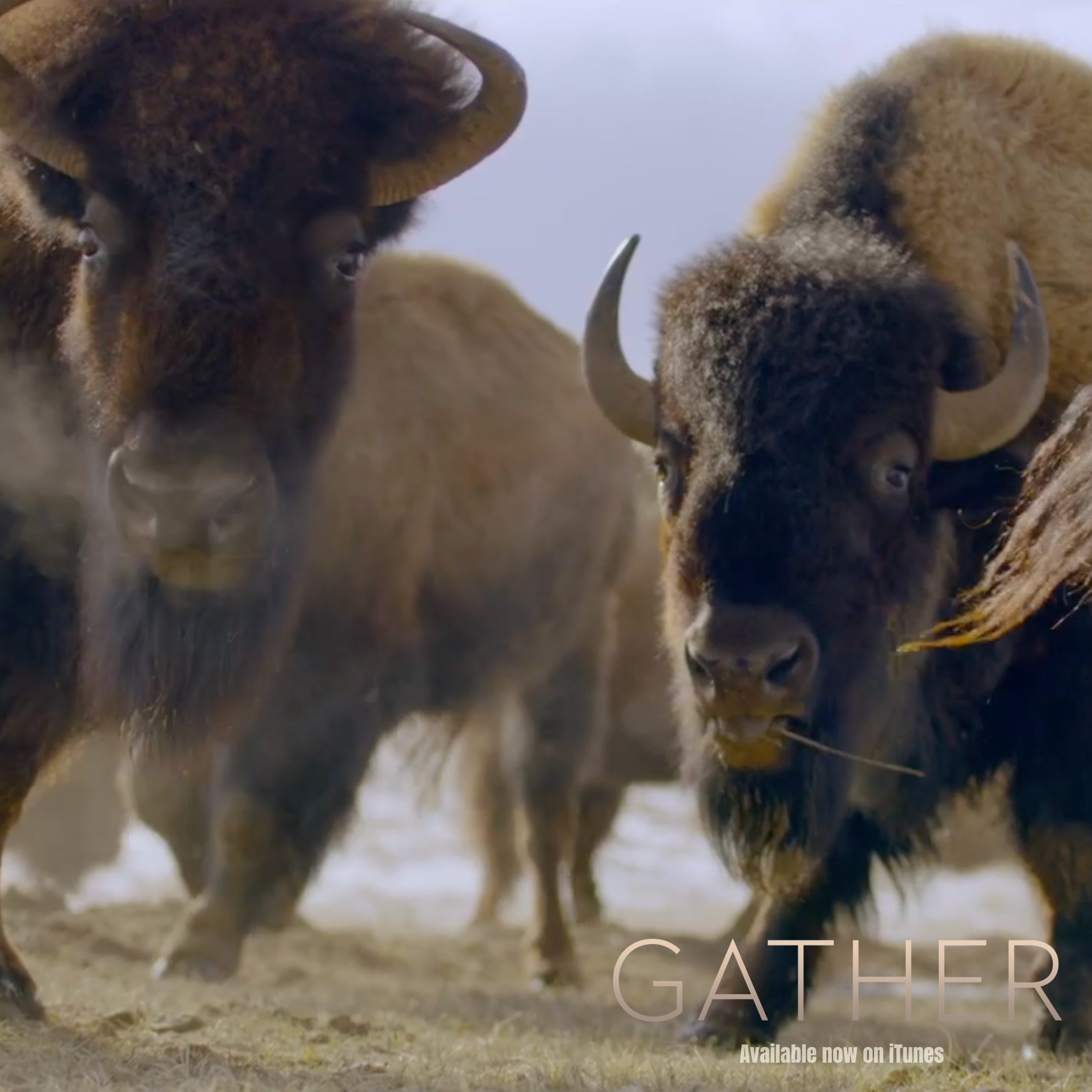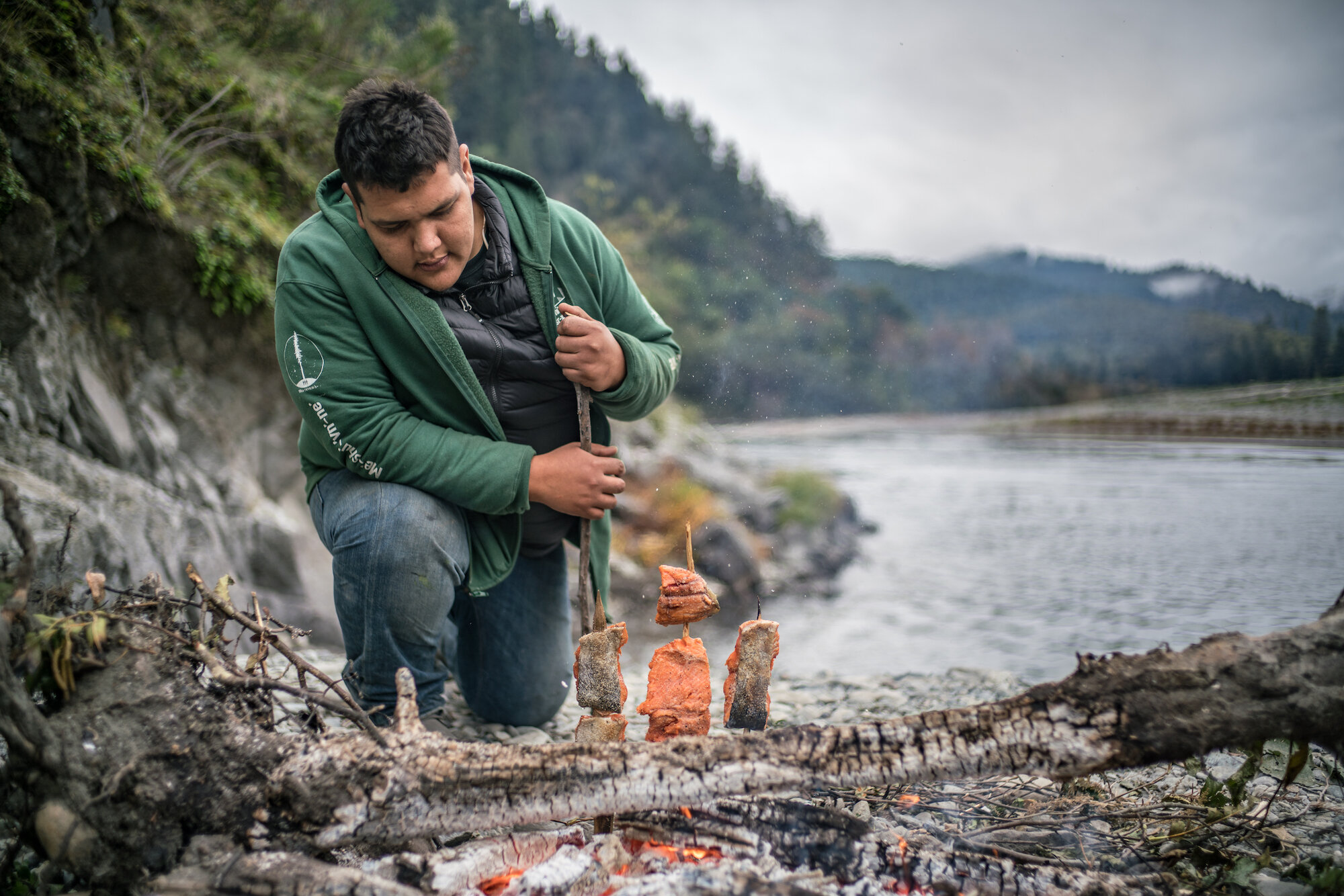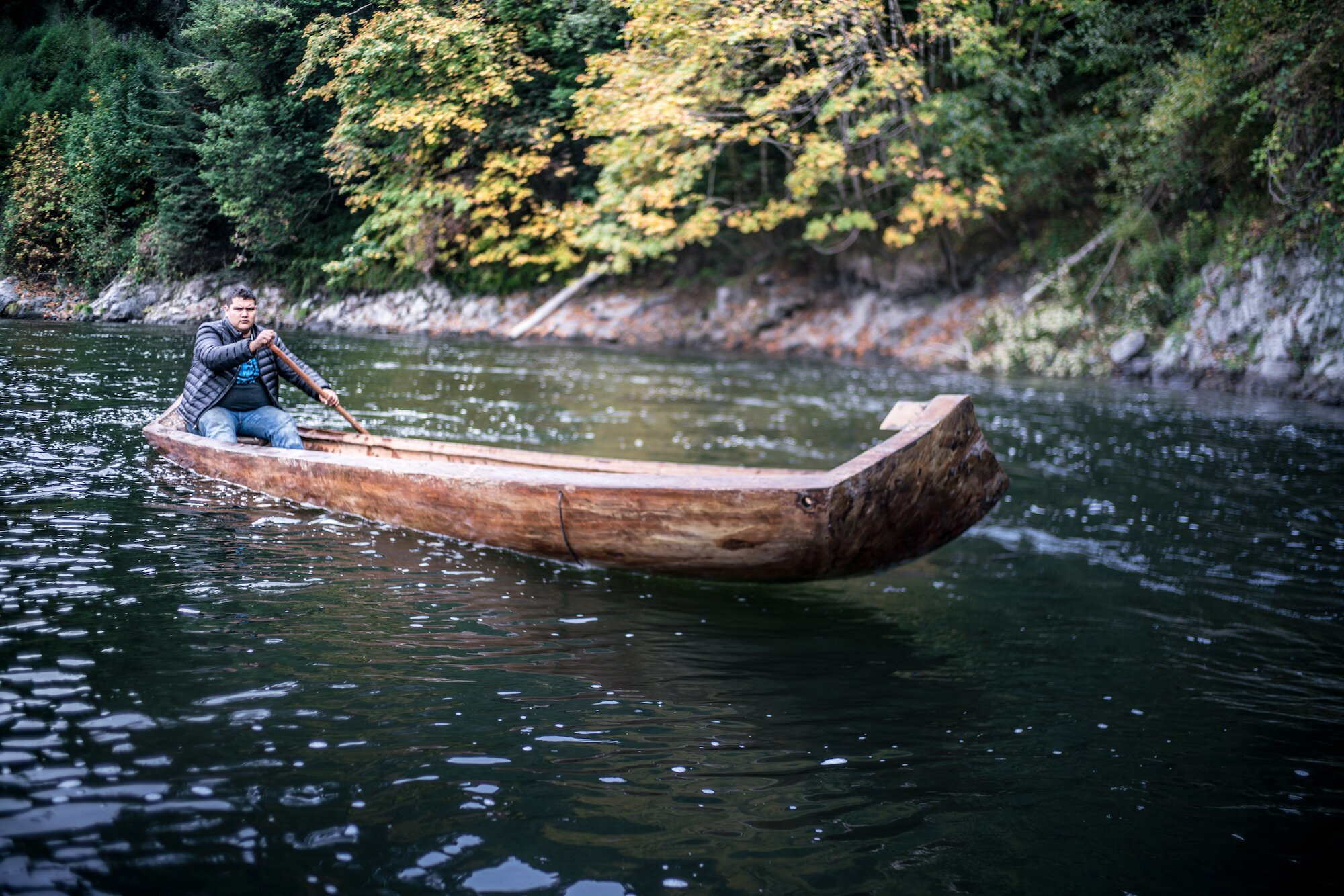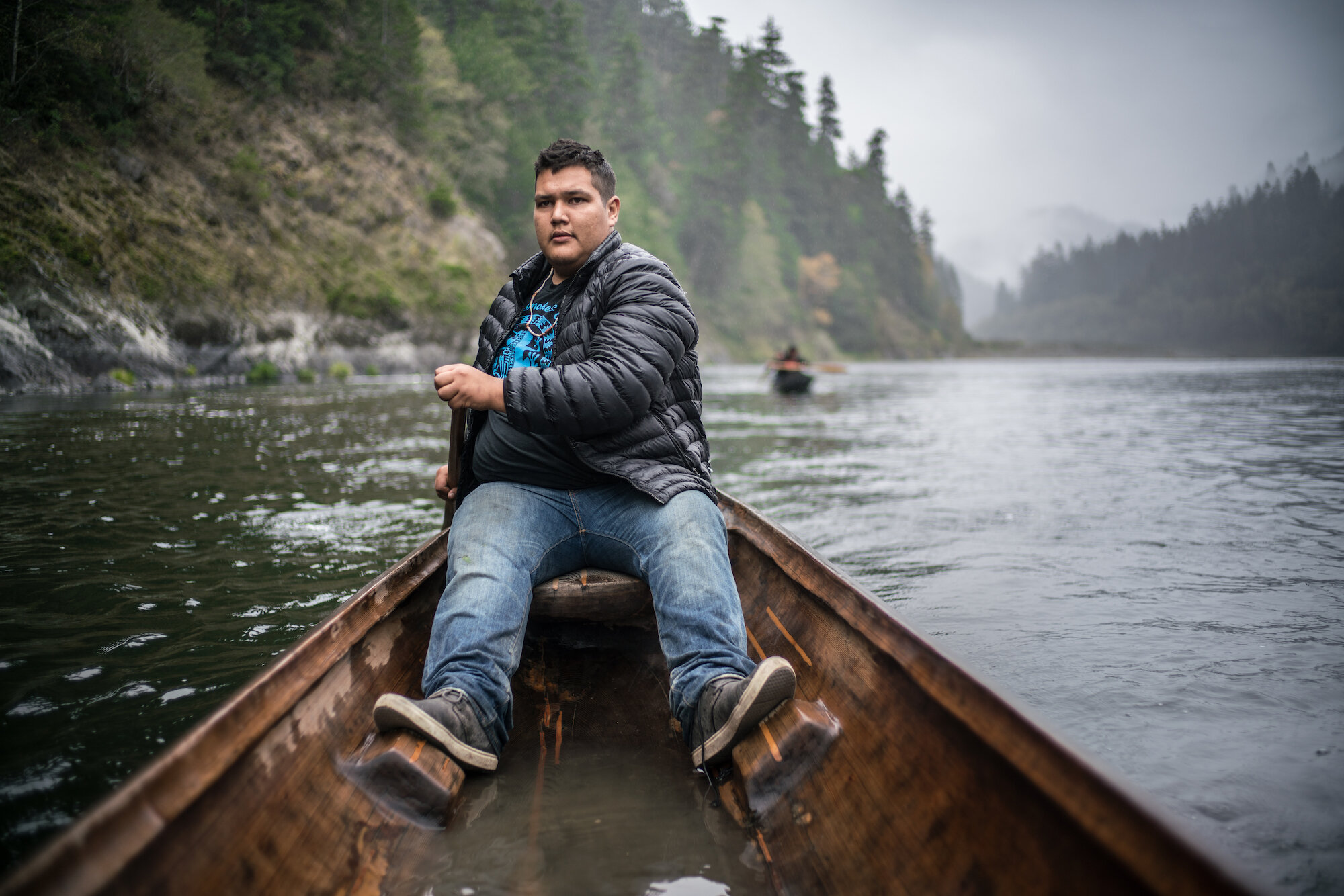From the Film Room: Gather
For Indigenous History Month, the Film Room is thrilled to be presenting the powerful and moving new documentary film, Gather (2020). On Tuesday, June 22, 2021, we’ll be gathering in virtual space for a live screening event of the critically acclaimed feature documentary film. The screening will be followed by an interactive live gathering and discussion with cast members and other inspiring invitees centered around collective healing through the reclamation of indigenous foodways, ecology, and land reparations.
About Gather
Gather is a critically acclaimed New York Times Critic’s Pick film that weaves together an intimate portrait of the growing movement amongst Native Americans to reclaim their spiritual, political, and cultural identities through food sovereignty while battling the trauma of centuries of genocide.
75% of the variety in global diets comes from products cultivated by indigenous peoples of the Western Hemisphere. There would be no such thing as Italian tomatoes, Irish potatoes, Thai chilis, East Indian spicy curries, Swiss chocolate, or African cassava without the extraction of these goods by early colonists. For centuries after that first Contact, the US government and military policy worked to separate indigenous peoples from traditional lands as a result of thousands of years of cultural and spiritual relationships with that land. A significant aspect of these relationships was incredibly deep ecological knowledge of local food systems. The poor health outcomes in Indian Country aren’t merely a result of poverty but, rather, of centuries of economic and government policy that targets their right to live in a traditional, environmentally balanced manner.
Gather follows the stories of Natives on the frontlines of a growing movement to reconnect with spiritual and cultural identities that were devastated by genocide. An indigenous chef embarks on an ambitious project to reclaim ancient foodways on the Apache reservation; in South Dakota, a gifted Lakota high school student, raised on a buffalo ranch, is proving her tribe’s native wisdom through her passion for science; and a group of young men of the Yurok tribe in Northern California are struggling to keep their culture alive and rehabilitate the habitat of their sacred salmon.
All these stories combine to show how the reclaiming and recovery of ancient foodways is a way forward for Native Americans to bring back health and vitality to their people.
Background
Centuries before Native North Americans encountered Christopher Columbus lost at sea tens of thousands of miles from his destination, indigenous peoples lived in harmony with the Land – cultivating and maintaining a thriving food system across the entire Western Hemisphere. In the early 1600s Europeans marked a push to settle the Americas. Unable to best natives through weaponry alone, Americans took to asymmetrical tactics – killing women and children, inducing famine, and demoralizing warriors. The most effective of these tactics was the annihilation of food systems. This attempt at extermination motivated not only military policy but social and political policy. It is by design that Indian Country remains food insecure – dependent on the same ration system enacted to settle Natives adjacent to Military Forts, freeing their ancestral lands for unabated resource extraction. The west was won by starving Indians and yoking them to government support – a system which endures to this day.
Directors Statement
I’m in a very privileged position as a non-indigenous director to make a film on Native American food sovereignty under the guidance of one of the most vaunted NGOs in Indian Country – First Nations DevelopmentInstitute (FNDI). The access their relationships in Indian Country have afforded us allowed us to make a film on these vital issues with depth and nuance we never could have reached otherwise. As it happens, I have a track record working with and for various indigenous groups around the world which informed my ability on Gather to simply listen and be present in an observational manner–allowing our Native American characters to drive their own narratives. I worked in human rights for 20 years, some of which was spent running a foundation that funneled millions of dollars of support to water infrastructure projects of the Dogon (Mali) and the Samburu (Kenya). My first film, Food Chains, chronicled the rise of a group of tomato pickers in Florida who were displaced Oaxacan, Chiapan, and Guatemalan indigenous. My last film, 3100: Run and Become, delved deeply into Navajo and Kalahari San Bushmen running traditions with rare access granted by elders themselves. At the same time, I come from a family and tradition from India that vehemently and sometimes violently opposed the British colonization. While my experience of historical trauma is not analogous to Native Americans, I feel alignment in my approach to the de-colonization of economics and my belief in human and civil rights. It is with this perspective that I approached my role in Gather. My job was to listen and serve. I understood that my abilities are limited as a non-Native but, like in all my films, I relied on the subjects to drive the narrative. I took their lead, guidance and just trained the cameras on them in a way that would expose and honor their traditions
Join us in supporting Gather for Indigenous History Month on Tuesday, June 22nd, 2021, a new film about the growing movement amongst Native Americans to reclaim their spiritual, political, and cultural identities through food sovereignty.
The screening event will be followed by a Live gathering and discussion with cast members and other invitees.
Production Team
Sanjay Rawal, Director
Sanjay spent 15 years working on human rights campaigns globally. He also ran initiatives for acclaimed artists and philanthropists, one of whom encouraged him to start making films. Sanjay’s first documentary, FOOD CHAINS(2014), was produced by Eva Longoria and Eric Schlosser with narration by Forest Whitaker. The film won numerous awards, was released theatrically in 40 cities by Screen Media and was acquired by Netflix. Sanjay’s second effort took a sharp turn into non-traditional filmmaking. Applying narrative cinematic technique, Sanjay directed a sweeping expedition film; 3100: RUN AND BECOME was released theatrically in the US in 20 markets last fall. It is now opening theatrically internationally. Sanjay’s work has been supported by Ford, Bertha, BritDoc, Fledgling, 11thHourProject, NoVo, and the Omidyar Network. His work has won an assortment of honors include a James Beard Media Award.
Tanya Meillier, Producer
In 2007, Tanya produced and edited her first feature documentary film, Obscene: A Portrait of Barney Rosset and Grove Press, which premiered at the Toronto International Film Festival, played theatrically, and acquired worldwide. In 2012 she produced the feature film Alias Ruby Blade: A Story of Love and Revolution, which premiered in competition at the 2013 Tribeca Film Festival and was subsequently acquired by Netflix and Al Jazeera America. Alias Ruby Blade was awarded a prize for "Most Valuable Documentary of the Year" by the Cinema for Peace Foundation in 2014. More recently she produced the feature film "3100: Run and Become" which had a theatrical release in the summer of 2018.
Renan Ozturk, Cinematographer
Renan Ozturk is a National Geographic photographer with an Instagram following of 800k+ and renowned for his stunning imagery of mountains and landscapes. He shot the award-winning feature doc Meru, in which he also starred, as well as Sherpa and Valley Of The Gods. He is a founding member of Camp 4 Collective.
Alex Meillier, Editor
Alex's first feature documentary, Obscene, premiered at the Toronto International Film Festival and broadcast on Sundance Channel U.S. Other professional credits include 3100: Run and Become (Editor), Amir Bar-Lev's Long Strange Trip (Add'l Editor), Alias Ruby Blade (Director), Michael Moore’s Capitalism: A Love Story (Editor), Born To Fly: Elizabeth Streb Vs. Gravity (Editor, Emmy award nominee), the HBO documentary Happy Birthday To A Beautiful Woman (Editor), and numerous commercial credits.
Sterlin Harjo, Producer
Sterlin Harjo (Seminole, Muskogee). Sundance Fellow (2004). His first narrative short Good Night Irene premiered at Sundance 2005. His next 3 narrative features (as director) also had Sundance premieres and were distributed theatrically and now digitally.


